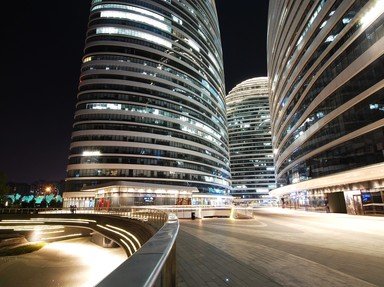Quiz Answer Key and Fun Facts
1. "Settlement in the marsh"
2. Named for a town in Lincolnshire
3. "Northern capital"
4. "Fair winds"
5. Named after a British general
6. "Gift of God"
7. Named after two cities that merged
8. "The wells" (as in a water well)
9. "Home of Beorma's people"
10. "The city of angels, the great city of immortals, the magnificent city of the nine gems, the seat of the king, the city of royal palaces, the home of gods incarnate, erected by Visvakarman at Indra's behest"
Source: Author
trident
This quiz was reviewed by FunTrivia editor
agony before going online.
Any errors found in FunTrivia content are routinely corrected through our feedback system.

